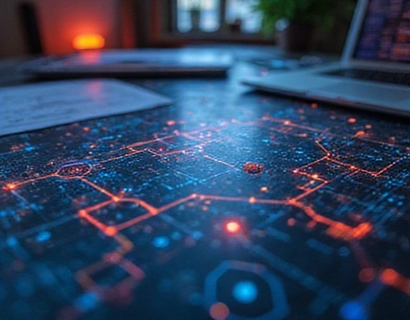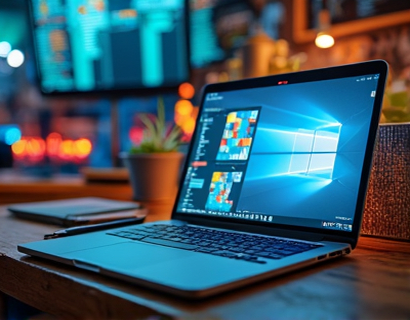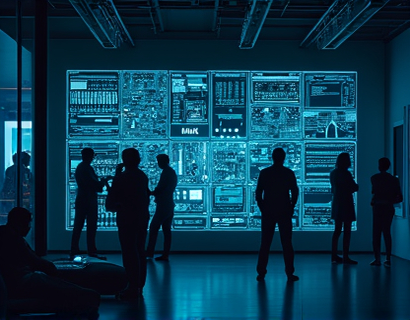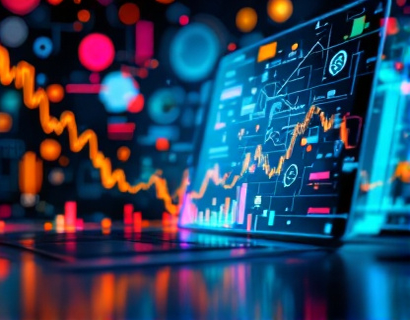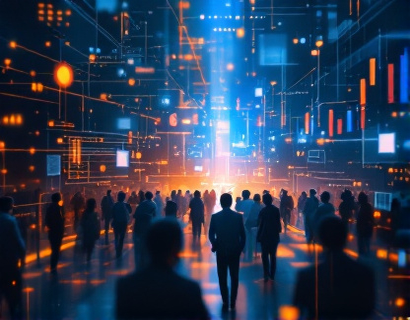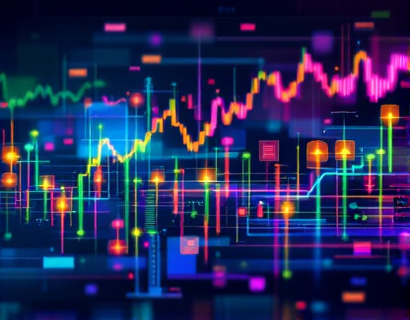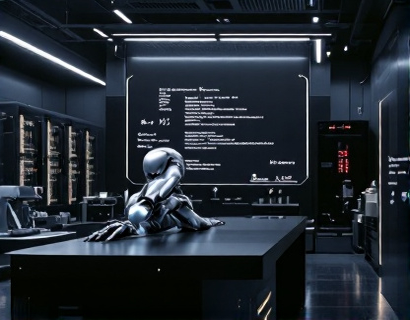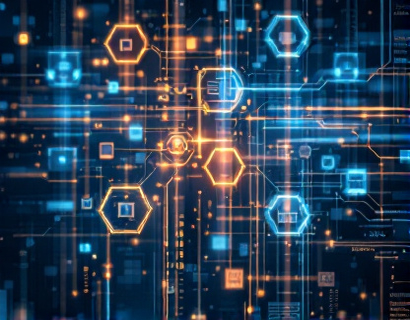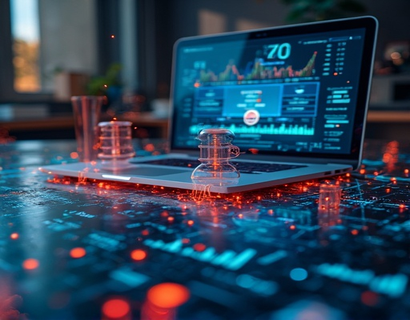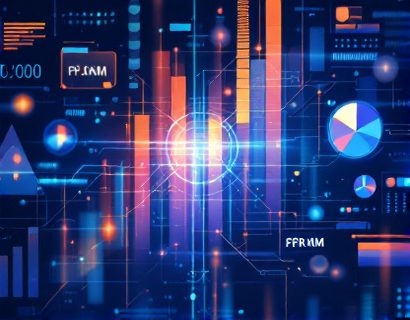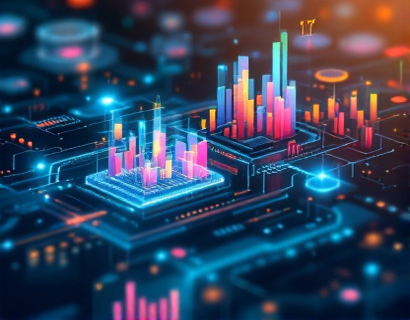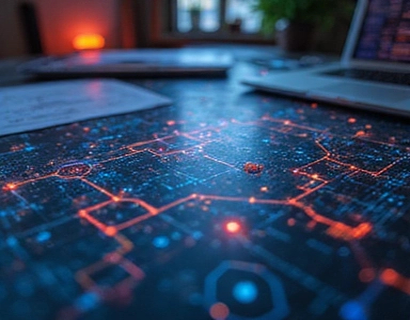Crypto and AI: Catalyzing Digital Transformation and Enhanced Engagement for Ecosystem Applications
The integration of blockchain technology and artificial intelligence (AI) is ushering in a new era of digital transformation, fundamentally altering how we interact with technology and each other. This synergy is not just a technological advancement but a paradigm shift that is redefining the boundaries of what is possible in the digital ecosystem. By combining the decentralized and secure nature of blockchain with the intelligent and adaptive capabilities of AI, we are witnessing the creation of more engaging, efficient, and user-centric applications.
The tech community, comprising tech-savvy innovators and early adopters, is at the forefront of exploring these combined technologies. Platforms like the one described here are dedicated to showcasing and leveraging the potential of crypto and AI to enhance user experiences and drive growth in the tech landscape. This article delves into the transformative impact of this integration, examining how it is reshaping interactions and unlocking new opportunities for tech enthusiasts and businesses alike.
Understanding Blockchain and AI
To fully appreciate the synergy between blockchain and AI, it is essential to understand each technology individually. Blockchain is a decentralized ledger technology that ensures transparency, security, and immutability in data transactions. It operates on a peer-to-peer network, eliminating the need for intermediaries and reducing the risk of fraud and manipulation.
AI, on the other hand, refers to the simulation of human intelligence in machines that are programmed to think and learn like humans. AI encompasses various subfields, including machine learning, natural language processing, and computer vision, enabling machines to perform tasks that traditionally required human intervention.
When combined, blockchain and AI create a powerful toolkit for building applications that are not only secure and transparent but also intelligent and adaptive. The decentralized nature of blockchain provides a robust foundation for AI systems to operate on, ensuring that data is tamper-proof and trustworthy. This combination can lead to more reliable and efficient AI models, as the data they learn from is inherently secure and verifiable.
Enhancing Digital Engagement
One of the most significant impacts of integrating blockchain and AI is the enhancement of digital engagement. Traditional digital platforms often struggle with issues such as data privacy, user trust, and personalized experiences. The combination of blockchain and AI addresses these challenges head-on, offering solutions that are both secure and tailored to individual needs.
For instance, AI-driven analytics can process vast amounts of user data to identify patterns and preferences, enabling more personalized and relevant content delivery. Blockchain ensures that this data is handled securely and transparently, giving users greater control over their information. Smart contracts, self-executing contracts with the terms directly written into code, can automate and enforce agreements, reducing the need for intermediaries and increasing efficiency.
Moreover, decentralized applications (dApps) built on blockchain platforms can leverage AI to provide seamless and intuitive user experiences. These dApps can adapt to user behavior in real-time, offering a more engaging and interactive environment. For example, a decentralized social media platform could use AI to curate content based on user interests while ensuring that data is stored and managed securely on the blockchain.
Driving Growth and Innovation
The synergy of blockchain and AI is not only enhancing user experiences but also driving growth and innovation in the tech ecosystem. Businesses and developers are finding new ways to leverage these technologies to create value and stay competitive in a rapidly evolving market.
One area where this synergy is making a significant impact is in the development of decentralized finance (DeFi) applications. DeFi platforms use blockchain to provide financial services such as lending, borrowing, and trading without traditional financial intermediaries. AI can enhance these platforms by optimizing trading strategies, risk management, and fraud detection. The transparency and security of blockchain ensure that transactions are trustworthy, while AI-driven insights can help users make more informed decisions.
Another promising application is in the realm of supply chain management. By combining blockchain's traceability and AI's predictive analytics, companies can create more transparent and efficient supply chains. AI can predict demand, optimize inventory, and identify potential bottlenecks, while blockchain ensures that all transactions and movements are recorded and verifiable. This combination can lead to reduced costs, improved accuracy, and enhanced customer satisfaction.
User-Centric Solutions
The focus on user-centric design is a key aspect of the blockchain and AI integration. Users are increasingly demanding more control, privacy, and personalization in their digital interactions. By leveraging the strengths of both technologies, developers can create solutions that meet these needs effectively.
For example, identity verification on blockchain platforms can be enhanced with AI to provide secure and seamless authentication processes. AI algorithms can analyze biometric data and behavioral patterns to verify identities with high accuracy, reducing the risk of fraud. This not only improves user trust but also simplifies the onboarding process for new users.
Additionally, AI-powered chatbots and virtual assistants can be deployed on blockchain-based platforms to offer 24/7 customer support. These AI-driven agents can handle a wide range of queries and transactions, ensuring that users receive immediate and accurate assistance. The decentralized nature of the platform ensures that user data is protected and that interactions are transparent and auditable.
Challenges and Considerations
While the potential of blockchain and AI integration is vast, there are several challenges and considerations that need to be addressed. One of the primary challenges is the technical complexity involved in developing and maintaining these systems. Developers require a deep understanding of both blockchain and AI to create robust and scalable applications.
Another challenge is the regulatory landscape. As these technologies are still relatively new, regulations are evolving and can vary significantly across different regions. Compliance with data protection laws, such as the General Data Protection Regulation (GDPR), is crucial to ensure that user data is handled responsibly and ethically.
Scalability is also a significant concern. Blockchain networks, particularly those using proof-of-work consensus mechanisms, can face limitations in terms of transaction throughput and processing speed. However, the development of more efficient consensus algorithms and layer 2 solutions is addressing these issues, making blockchain more scalable and suitable for widespread adoption.
Future Prospects
The future of blockchain and AI integration looks promising, with ongoing advancements poised to unlock even more possibilities. As the technology matures, we can expect to see more sophisticated and user-friendly applications that seamlessly blend the strengths of both blockchain and AI.
One area of excitement is the development of decentralized artificial intelligence (DAI). DAI platforms aim to create AI systems that are decentralized, transparent, and community-driven. These systems can leverage the collective power of the network to train and improve AI models, ensuring that they are fair, unbiased, and resilient to manipulation.
Another frontier is the integration of blockchain with emerging technologies such as the Internet of Things (IoT) and 5G networks. The combination of these technologies can lead to smarter, more connected, and autonomous systems. For instance, AI-driven IoT devices can generate and process data on blockchain networks, ensuring that data is secure and tamper-proof.
In conclusion, the integration of blockchain and AI is revolutionizing the digital ecosystem, offering unprecedented opportunities for enhanced engagement, growth, and innovation. By addressing the challenges and embracing the potential of these technologies, we can create a more secure, transparent, and user-centric digital world.







